George Orwell's "Animal Farm" is a poignant allegorical novella that satirizes totalitarianism and the corruption of socialist ideals in the early 20th century. Set on a farm where the animals revolt against their human owner, the narrative unfolds to reveal the profound moral and ethical dilemmas inherent in the quest for equality and governance. Orwell's prose is accessible yet laden with symbolism, allowing readers to engage deeply with its themes of power, betrayal, and the cyclical nature of oppression, firmly situating the work within the context of political events following the Russian Revolution. George Orwell, born Eric Arthur Blair, was influenced by his experiences with imperialism and social injustice, factors that informed his staunch criticism of both authoritarian regimes and capitalist excesses. His firsthand encounters in the Spanish Civil War and British colonialism provided a visceral understanding of the complexities of political ideologies. These experiences underpin the narrative structure and moral urgency of "Animal Farm," crafted as a cautionary tale against the ease with which noble intentions can devolve into authoritarian practices. I highly recommend "Animal Farm" to readers seeking not only a compelling story but also vital insights into human nature and political dynamics. Its brevity belies the depth of its commentary, making it essential for anyone interested in history, politics, or literature.
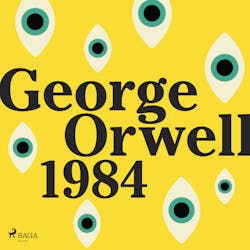
1984
George Orwell
audiobookbook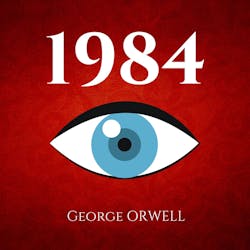
1984
George Orwell
audiobookbook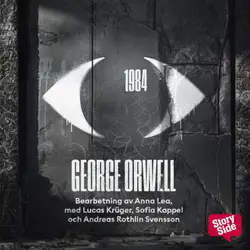
1984
Anna Lea, George Orwell
audiobook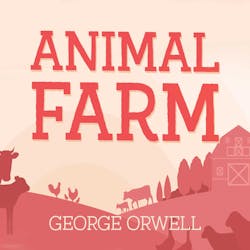
Animal Farm
George Orwell
audiobookbook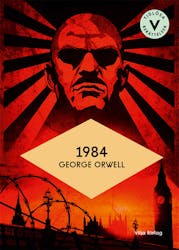
1984 (lättläst)
George Orwell
audiobookbook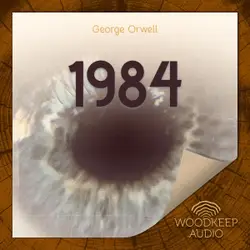
1984
George Orwell
audiobookbook
1984
George Orwell
audiobookbook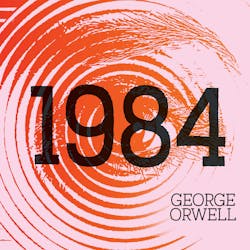
1984
George Orwell
audiobookbook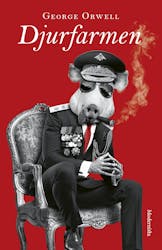
Djurfarmen
George Orwell
book
Djurens gård
George Orwell
audiobook
Library of Masterpieces - 100 Books to Read in a Lifetime
illiam Shakespeare, Fyodor Dostoevsky, Louisa May Alcott, Miguel de Cervantes, John Milton, Jane Austen, Charlotte Brontë, Emily Brontë, Anne Brontë, William Makepeace Thackeray, George Eliot, Charles Dickens, Thomas Hardy, Jonathan Swift, Daniel Defoe, Joseph Conrad, Robert Louis Stevenson, Mary Shelley, Bram Stoker, Arthur Conan Doyle, Wilkie Collins, Oscar Wilde, T. S. Eliot, D. H. Lawrence, James Joyce, Virginia Woolf, E. M. Forster, Evelyn Waugh, Aldous Huxley, George Orwell, H. G. Wells, Lewis Carroll, Frances Hodgson Burnett, Kenneth Grahame, C. S. Lewis, Malcolm Lowry, Ford Madox Ford, Mark Twain, Jack London, Herman Melville, Ernest Hemingway, Jack Kerouac, Nathaniel Hawthorne, Edith Wharton, Walt Whitman, Kate Chopin, Harriet Beecher Stowe, Neale Hurston, Richard Wright, Raymond Chandler, Dashiell Hammett, F. Scott Fitzgerald, John Steinbeck, William Faulkner, Margaret Mitchell, Sylvia Plath, Carson McCullers, L. Frank Baum, L. M. Montgomery, Leo Tolstoy, Ivan Turgenev, Nikolai Gogol, Johann Wolfgang von Goethe, Friedrich Nietzsche, Thomas Mann, Franz Kafka, Erich Maria Remarque, Albert Camus, Marcel Proust, Jules Verne, Victor Hugo, Gustave Flaubert, Stendhal, Alexandre Dumas, Henrik Ibsen, Rudyard Kipling, Homer, Sophocles, Virgil, Laozi, Sun Tzu, Plato, Marcus Aurelius, Dante Alighieri, Niccolò Machiavelli
book
1984: Nineteen Eighty Four
George Orwell
audiobook
